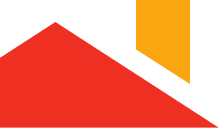

Before being recruited, the employee is first interviewed by our teams (ideally a social worker and a technical supervisor), after being referred by our social partners. This is when we can explain in detail what we do and how our sites work. This allows us to check that the person understands the job and to see if it's right for them.
Then, on his or her first day, the employee is received by our social worker, who explains all the administrative details of the contract and explains the various training options available... Then the work experience begins! After that, there are many social events to facilitate integration, one being barbecues!
The low level in French is often the main barrier to employment among refugees employed in structures such as Tricycle and Reavie. The work-integration programs specifically allow for French courses during working hours.
Réavie and Tricycle employees are referred by local social partners. They sign an integration contract (CDDI), which provides them with social support and access to training, including French language courses, while at the same time working hours on various sites, with a technical supervisor on hand to help them with their work and posture. They can then sign an ordinary contract with the company, or take advantage of this experience to join another company in the construction industry or in another sector.
Reuse techniques in the building industry offer a wide range of occupations, which are becoming increasingly recognized and are helping to create the conditions for a sustainable society. For example, a recovery technician who observes the reuse of building materials, an urban metabolizer, and a reuse carpenter..
External partners are mobilized to provide a diverse range of workshops according to the needs and wishes of the employees. It includes mandatory health safety trainings, language courses, cultural activities, drivers license, various manual handling certificates, and technical vocational trainings.
Tricycle and Reavie are social integration companies: they receive state subsidies for their jobs, but their economic model is based primarily on their commercial sales. Their ability to offer stable jobs therefore depends on the volume of work they carry out.
Access to additional public subsidies and private fundings is often crucial. Public support can take the form of public procurement contracts that require the use of integration companies, reserved contracts or social clauses.
In addition, we note that changes in regulations and laws support Réavie and Tricycle's re-use activities (AGEC law, EU directives, etc.), and de facto offer significant professional opportunities for its employees, in a sub-sector that is gradually becoming a source of employment.
When the whole site team works well together, it's a success.
If people have had a better chance of fulfilling their personal wishes, whether in the construction industry or elsewhere, that's the best success!